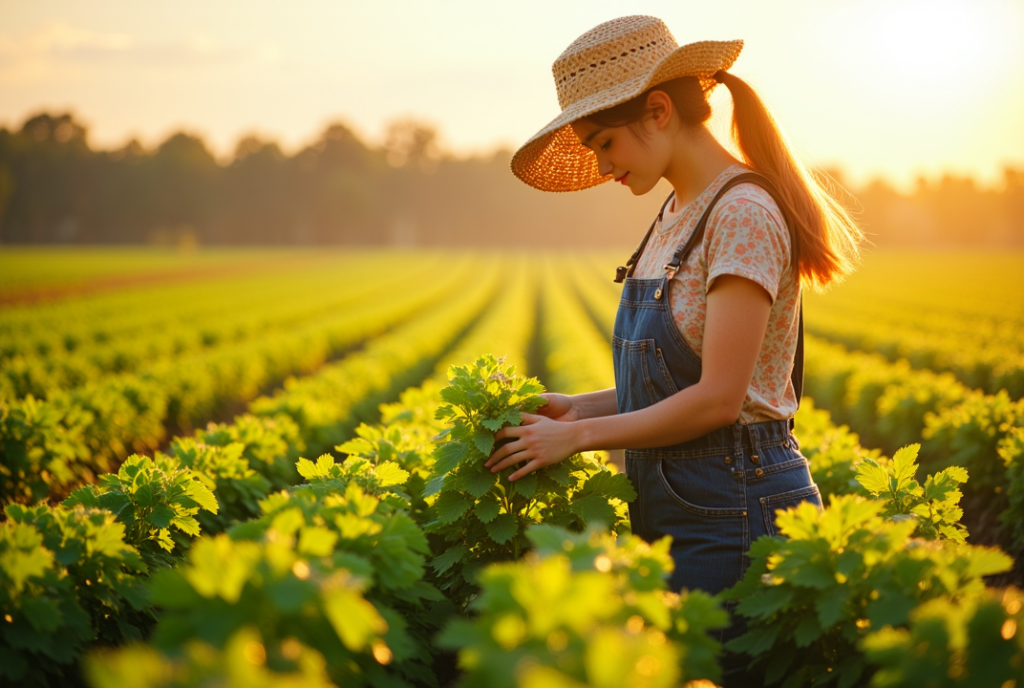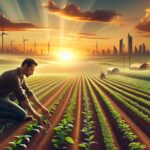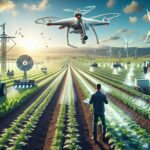Sustainable Agriculture: Cultivating a Greener Future
In an era where environmental concerns are at the forefront of global discourse, sustainable agriculture emerges as a beacon of hope. This approach to farming is not merely a trend but a necessity, as it seeks to harmonize the needs of the present with the preservation of resources for future generations. By integrating ecological, economic, and social sustainability, sustainable agriculture offers a comprehensive solution to some of the most pressing challenges facing our planet today.

Understanding Sustainable Agriculture
At its core, sustainable agriculture is a method of farming that prioritizes the health of the environment, economic viability, and social equity. It is a holistic approach that combines traditional farming wisdom with modern scientific innovations. The goal is to produce food in a way that maintains the balance of natural ecosystems, supports farmers’ livelihoods, and ensures food security for all.
Ecological Sustainability
Ecological sustainability is the foundation of sustainable agriculture. It involves practices that protect and enhance the environment, such as crop rotation, no-till farming, and agroforestry. Crop rotation helps improve soil quality and disrupts pest cycles, while no-till farming reduces soil erosion and preserves soil structure. Agroforestry integrates trees into farming systems, promoting biodiversity and providing additional income sources.
Moreover, sustainable agriculture often incorporates organic farming techniques, which avoid synthetic pesticides and fertilizers. This not only protects the environment but also ensures the health of consumers by reducing exposure to harmful chemicals.
Economic Sustainability
Economic sustainability in agriculture ensures that farmers can earn a living while practicing environmentally responsible farming. By reducing input costs through sustainable practices, farmers can improve their bottom lines. Diversifying crops and adopting resilient farming methods also help farmers withstand market fluctuations, ensuring long-term economic stability.
Supporting small-scale farmers is another crucial aspect of economic sustainability. By promoting equitable access to resources and markets, sustainable agriculture empowers these farmers, who play a vital role in global food production.
Social Sustainability
Social sustainability extends the benefits of sustainable agriculture to entire communities. It emphasizes fair wages for agricultural laborers, preventing exploitation and promoting dignity in the workforce. Community engagement is also encouraged, allowing local populations to have a say in farming and food systems.
Furthermore, sustainable agriculture plays a pivotal role in ensuring food security. By adopting practices that increase crop yields over time, it guarantees access to safe, nutritious food for everyone, addressing one of the most critical challenges of our time.
The Importance of Sustainable Agriculture
As the global population continues to rise, the demand for food is increasing exponentially. Sustainable agriculture is essential for meeting this demand without depleting the planet’s resources. It offers a practical solution to food security, ensuring that future generations can also enjoy the bounty of the earth.
Moreover, sustainable agriculture helps mitigate climate change by reducing greenhouse gas emissions. By prioritizing practices that conserve water, reduce pollution, and promote biodiversity, it contributes to the overall health of the planet.
Challenges and Opportunities
While sustainable agriculture presents numerous benefits, it is not without challenges. Transitioning from conventional to sustainable practices requires investment, education, and policy support. Farmers need access to resources and training to adopt new methods effectively.
However, the opportunities are immense. By embracing sustainable agriculture, we can create a food system that is resilient, equitable, and capable of feeding a growing population. It is a vision for the future where food production respects the delicate balance of our planet and the rights of all its inhabitants.
Conclusion
Sustainable agriculture is more than just a farming method; it is a commitment to the well-being of our planet and its people. By integrating ecological, economic, and social sustainability, it offers a pathway to a brighter and more sustainable future. As we face the challenges of climate change and resource depletion, sustainable agriculture stands as a testament to human ingenuity and our ability to adapt for the greater good. Let us embrace this approach and cultivate a greener future for generations to come.



